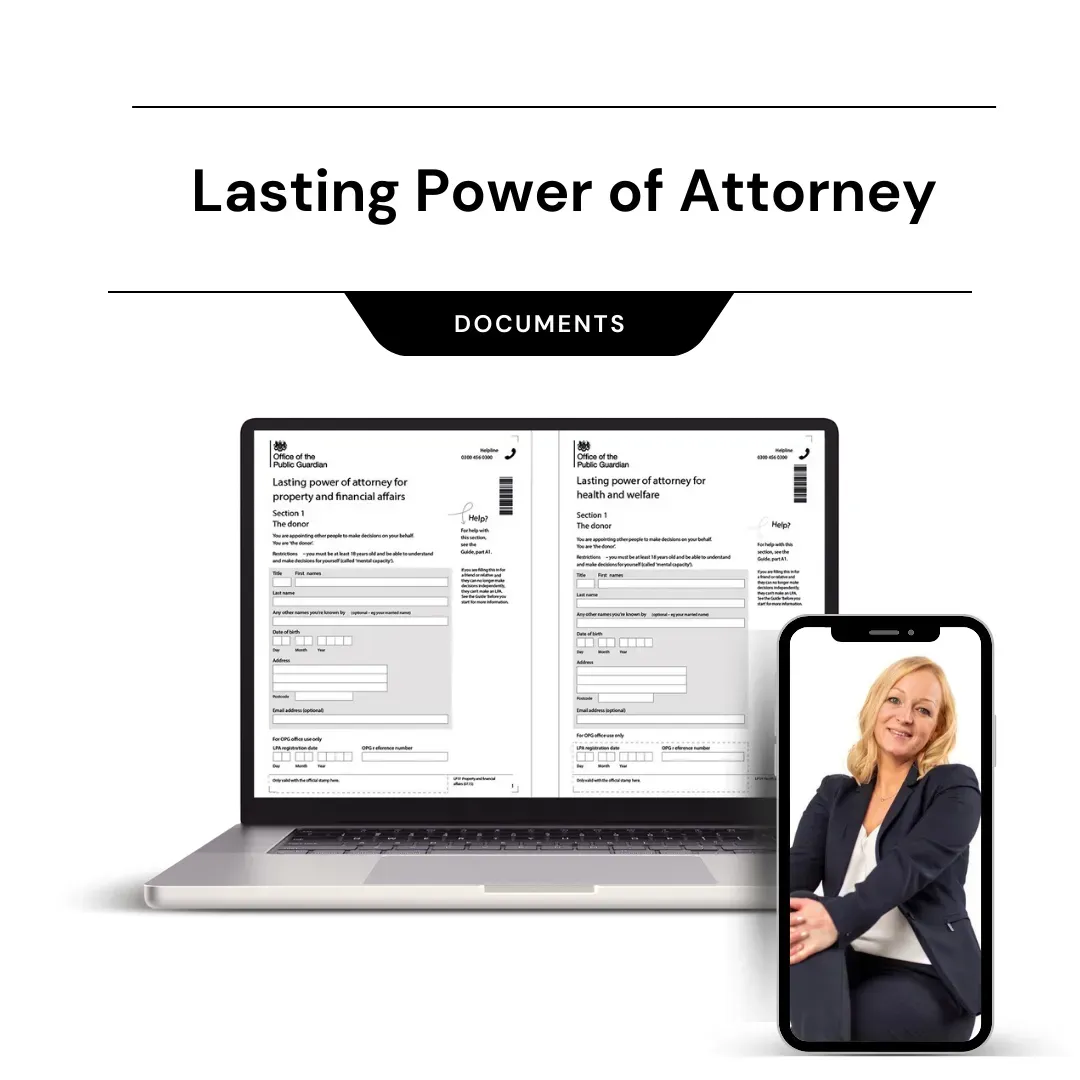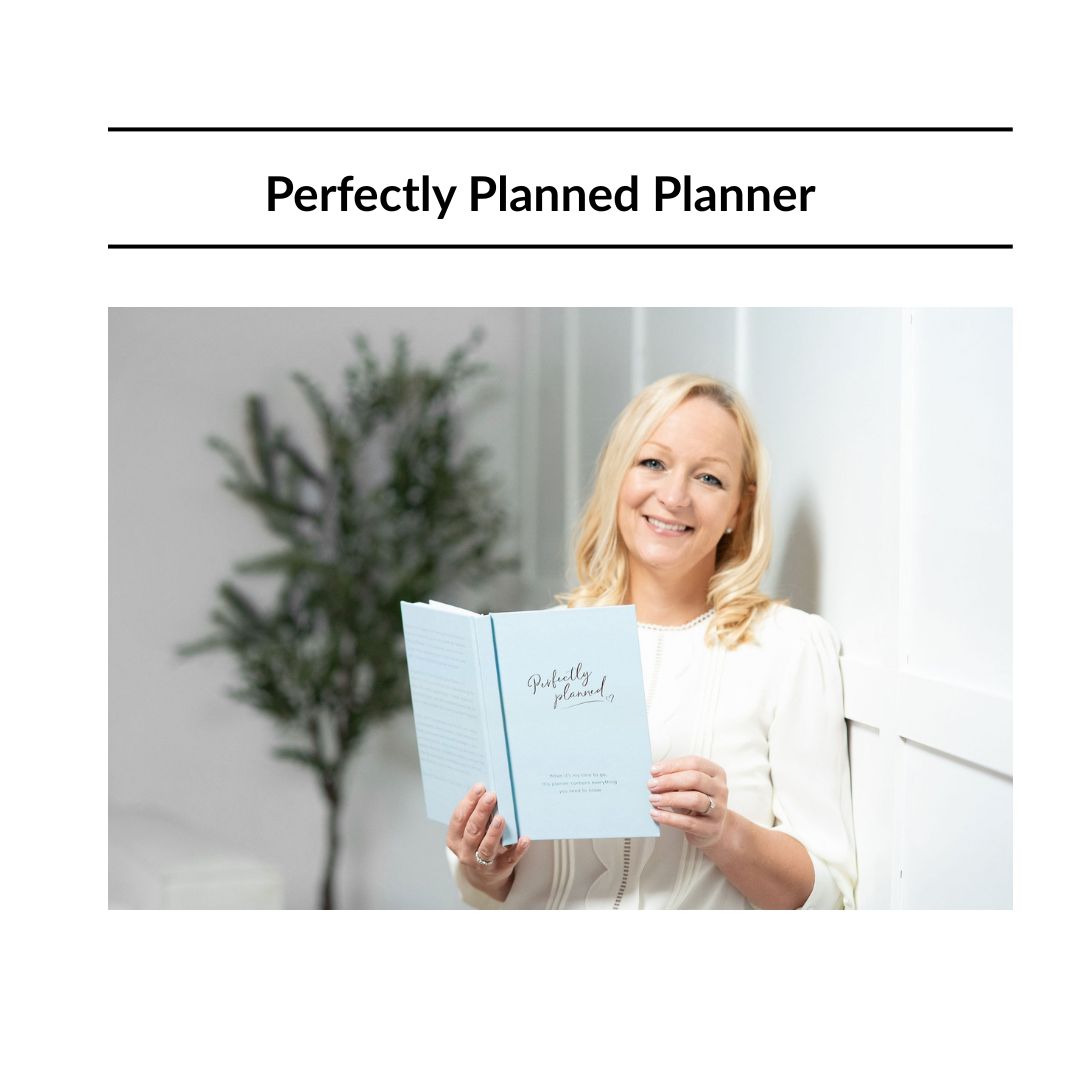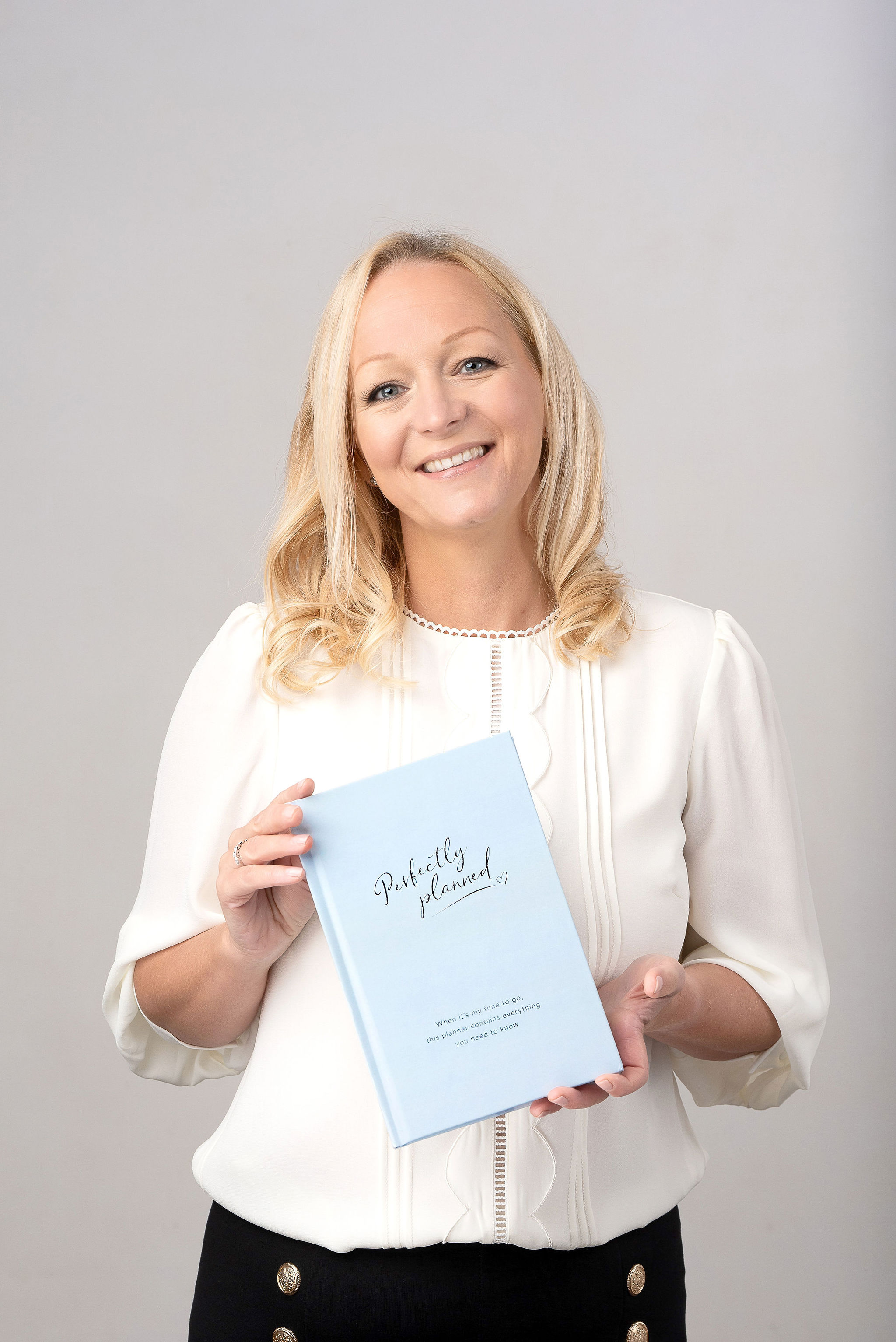
I HELP YOU TO
PROTECT INHERITANCE
For your children
I take the complication out of protective Trusts that can be added to your Will to give you peace of mind.
I help families to ensure their children's inheritance is protected, against threats from any future divorce settlements, creditors, bankruptcy, unnecessary taxation or complicated family scenarios and advise on long term care planning.
I show parents of vulnerable children how they can protect their children's inheritance if they have disabilities, addictions (drug, alcohol, gambling) or rely on means tested benefits.
I help families to put Lasting Powers of Attorney in place.

Hi, I'm Clare
I believe it's vital to empower people with knowledge about the options available to them with their
Lasting Powers of Attorney, Wills & Trusts.
I love the peace of mind on my customers faces when we complete their documents and store them securely for them.
I have produced the Perfectly Planned Planner to help families feel organised, protected and prepared.


Authorised/Regulated by The Society of Will Writers
A self-regulatory organisation whose primary objectives are the advancement, education and ethical standards within the will writing profession.
Five Star Rated on Trust Pilot
Over 50 five-star Trust Pilot reviews from my previous customers. You can be confident in my level of service.
A Wealth of Experience
With over a decade of experience preparing these documents, I bring a wealth of knowledge and expertise to every appointment.
My Services
Making the process of protecting your family's inheritance easy!
My priority is to give you the peace of mind that everything is organised, protected and exactly how you want it to be...

Individual & Mirror Wills
Put Guardians in place for young children
Choose beneficiaries
Make exclusions if you wish
Get peace of mind
Professional storage available

Property & Finance
Health & Welfare
Done for you service
Couples multi-product discounts
I manage the registration process for you

Property Protection Trusts
Protect your children's inheritance
Ensure your share is passed to YOUR chosen beneficiaries
Protect inheritance from second marriages


INTRODUCING
Perfectly Planned Planner
Created with heart & expertise
produced by a 5-star rated Estate Planner

100% risk free - 30 day money back guarantee
Available Now

What makes this planner so powerful...
The trusted place with everything your family needs.
Organise everything your account details, assets, passwords & messages of love.
Checklists & top tips from a 5-star estate planner.
Nothing lost, nothing left to chance!
Just £35
FREE POSTAGE
I offer flexible appointment options to suit your needs.
Video, phone or face-to-face appointments in Northamptonshire.
take the first step
Book your appointment
5 star rated on Trust Pilot
What people are saying...

Dominic Pemberton
" Clare guided us through our power of attorney and wills providing a friendly and professional service. Her advice made everything understandable "
Giuseppe Memoli
" We found Clare very helpful and professional. She explained it all to us in a simple and understanding way nothing was too much trouble for her.."
Anna Case
" Our experience with Clare was perfect in everyway! We thought it would be a long and complicated process but how wrong we were as Clare made it so easy!"
Lorraine Inglis
"It was seamless start to finish, from contacting Clare through to completion of wills. Clare is very warm, extremely knowledgeable and professional".
David Skinner
" Clare is a very professional person. She knows her subject and explains everything in a very clear way.The whole process is made easy when you are dealing with someone like this."
Mat Burton
" Clare was absolutely fantastic. She made the entire process easy and straightforward. She was thorough, informative, and took the time to explain everything clearly, using plain language."
Emma Quin
" Clare was recommended to me and I am so pleased that she was! She is so patient and professional, always on hand to answer questions and quick to respond."
Mark Malitskie
" Clare was highly professional, courteous and friendly. Visiting us in our home she updated our wills, advised us about Trusts and LPA's and answered our many questions very promptly."
Frequently Asked Questions
What happens if I don't make a Will?
If you don't make a Will, then your property, money and belongings at the date of your death will be dealt with by a set of rules, known as the intestacy rules.
If you are married and have children, then your partner will only inherit your property, the first £322,000 of your estate and then the rest will be split equally between your partner and your children. If you jointly own your property your partner will automatically inherit the property, and this will not be included in the £322,000
If you have no children or an estate worth less than £322,000 then your partner will inherit everything.
If you have no surviving spouse or civil partner at the date of your death, then your estate will be left to your children (if any) in equal shares.
If you have no spouse or children/grandchildren, it will pass to your parents, siblings, nieces and nephews.
This may not be in line with your wishes and if it isn't then you need to make a Will to ensure your wishes are followed.

Who Can Witness My Will?
Witnesses do not need to read the Will or know its contents, although they should be told what it is. They are simply witnessing your signature and acknowledging that you have signed the Will freely, and on the basis that the contents of the Will have been understood and approved by you.
Witnesses must be over 18 years old.
Witnesses need to be independent and should not be related to you or anyone mentioned in your Will, either by blood, marriage or civil partnership, however your witnesses may be related to each other.
DO NOT ask a beneficiary, nor the spouse/registered civil partner of a beneficiary to witness the Will, as any benefit or interest to which they are entitled within the Will, will be lost.

Do I Need A Solicitor To Set Up A Lasting Power of Attorney?
No, you don't need a solicitor to set up your Lasting Power of Attorney.
Lasting Powers of Attorney documents are standard 20 page documents. So whether you use an independent Estate Planner like myself or a Solicitor, the outcome will be exactly the same.

Who Needs A Lasting Powers of Attorney?
A Lasting Power of Attorney is useful in a whole range of situations, for example if you had an accident, lost mental capacity, or became seriously unwell and unable to make day-to-day decisions about your health, welfare or financial situation.
Lots of these situations can come out of nowhere, without much warning. Which is why every adult should consider having a Lasting Power of Attorney, so you’re prepared for whatever life throws your way.
Martin Lewis (Money Saving Expert) advocates that everyone needs a Lasting Power of Attorney (LPA) because it allows someone you trust to manage your finances and health if you lose the ability to do so yourself. He emphasizes that an LPA is more important than a will, as it deals with your affairs while you are alive but unable to manage them, potentially preventing financial complications and court intervention.

What Is The Purpose Of A Lasting Power of Attorney?
A Lasting Power of Attorney (LPA) is a document that allows you to appoint someone you trust, as your attorney, which gives them the legal authority to make decisions on your behalf if you lose the mental capacity to do so in the future.

Does A Lasting Power of Attorney Override A Will?
Lasting Power of Attorney and a Last Will and Testament are two different legal documents with different purposes and effects.
Whereas a Will only comes into effect after you have died, a Lasting Power of Attorney is a legal document that is used before you die, usually when you aren’t able to make your own decisions and lose mental capacity.
The moment that you die a Lasting Power of Attorney ends.

When Should I Make A Lasting Power of Attorney?
I recommend for you to get it sorted way ahead of time, because it makes a world of difference when it matters.
It can be more important the older you are as illnesses such as dementia become a higher risk.


Wills and Trusts is a non regulated industry.
I have completed specialist training and achieved a qualification with the Society of Will writers which is the largest and leading self-regulatory body representing the Will Writing Profession.
Registered Address: Clare Sutherland Wills & Trusts, 260 Deeble Road, Kettering, Northamptonshire, England, NN15 5HP



